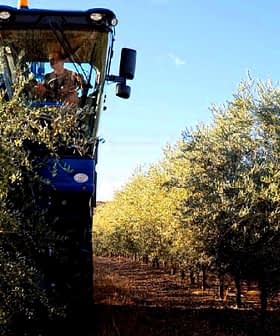Uncertainty Leads to Higher Prices in Spain
Skewed data and a killer disease have cast a sense of anxiety over the Spanish olive oil market. Production has decreased and olive oil prices are likely to spike.
Spain will likely reduce olive oil production while increasing prices in 2016 mainly because of the Spanish government’s downward production corrections that have brought uncertainty upon the Spanish olive oil market.
The Spanish Agricultural Council had estimated in a recent report that Spain would produce 1.3 million tons of olive oil in 2016 but it turned out that estimate was a bit premature. In fact, it did not fully account for the production figures of Andalusia and Extremadura, which revealed themselves to be lower than expected; the Spanish Agricultural Council actually based its estimations on skewed data and anticipated yield figures that were too optimistic.
See Also:Complete Coverage of the 2016 Olive Harvest
The government considered more relevant figures and thus has stated that the actual yield would be closer to 1.311 million tons, which is still insufficient to meet demand. It is important to note that the Spanish government’s newly-released 2016 yield figure serves as the official barometer for olive oil pricing and economic analyses.
The uncertainties stemming from the government’s revised figures cast a sense of anxiety over the Spanish olive oil market, but it is not the only factor explaining the fall in olive oil production (as well as the rise in prices).
In fact, a disease that proved to be a serious threat has just arrived on the island of Mallorca. The island has taken protective measures as the Xylella fastidiosa pathogen is currently wreaking havoc on olive oil trees there.
Moreover, Spanish olive growers have started their yield relatively late and many stores don’t even have olive oil stocks.
Not being able to meet the domestic demand fully is economically penalizing, but the late harvest in Spain also had other severe consequences: Portuguese olive growers have started harvesting much sooner than their Spanish counterparts and the market share for Spanish olive oil in Portugal is currently experiencing a significant drop as Portuguese shelves have already been stocked with domestic olive oils.
All those factors have contributed to making olive oil prices spike in Spain. According to Poolred — the indicator of prices established by the Spanish Olive Foundation — olive oil prices are currently heading towards an ascending path. A kilogram of extra-virgin olive oil costs €3.46 ($3.67) while a kilogram of virgin olive oil costs €3.17 ($3.37).
The only Spanish province that has benefited from the rise in market price is Jaén. Indeed, the world-renowned province has had a better harvest than the rest of the country. As a result, Jaén will likely be able to earn new market shares and take advantage of the rise in olive oil price by selling its product at a higher price compared with last year while maintaining satisfactory yield levels.









